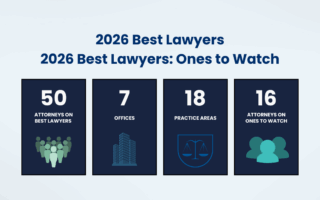Barry Moscowitz Secures Arbitration Win for Texas-based Grocery Store Against $3.5M Injury Claims
Oct 23, 2025
Dallas partner Barry Moscowitz secured a win in arbitration for a Houston-based grocery store client against premises liability claims of almost $3.5 million.
Background
Claimant worked as an employee for Respondent. On the day of the incident, Claimant walked into a produce cooler that had concrete floors, and claimed to have slipped on a puddle of water. Claimant admitted during the arbitration that he saw the puddle of water before he stepped in it. Claimant made a claim of neck and back injuries requiring multiple surgeries and a recommendation for a future surgery.
The recommendation for the future surgery came just a few weeks before the final arbitration date and was obtained from a doctor that Claimant had never seen before, and the appointment was set by his attorney. Claimant’s damages included amounts for all past medical bills and a multi-million-dollar life care plan.
Non-Subscriber Duty to Employees
Respondent had a benefit plan outside of the Texas Workers Compensation Act, which made them a non-subscriber as defined by the Texas Legislature, which stripped the Respondent of the defense of contributory negligence. The Claimant alleged that Respondent was negligent because of a premises defect, which requires that the grocery store had knowledge of a condition on the premises that imposes an unreasonable risk of harm and that they failed to reduce or eliminate the risk.
In Kroger Co. v. Elwood, the courts established a non-subscriber employer does not have a duty to warn of hazards that are commonly known or already appreciated by the employee. Additionally, the employer is not liable for injuries from work the employee has always performed and that is not “unusually precarious.” In Austin v. Kroger, the court determined that an employee’s appreciation of a hazardous condition is not a complete bar to recovery if the employer reached its non-delegable duty to provide necessary instrumentalities.
The arbitrator determined that when viewing the balancing factors, the risk of a fall was minimal, and the likelihood of an injury was not foreseeable. The fact that an employee has an accident while working doesn’t mean the employer was negligent. Since the Claimant was performing tasks that he performs several times a week in the same conditions that exist every day, there was nothing that the Respondent could do to prevent the cooler floor from being wet. The arbitrator awarded in favor of the Respondent against all the Claimant’s claim for injuries resulting in a take-nothing award.








